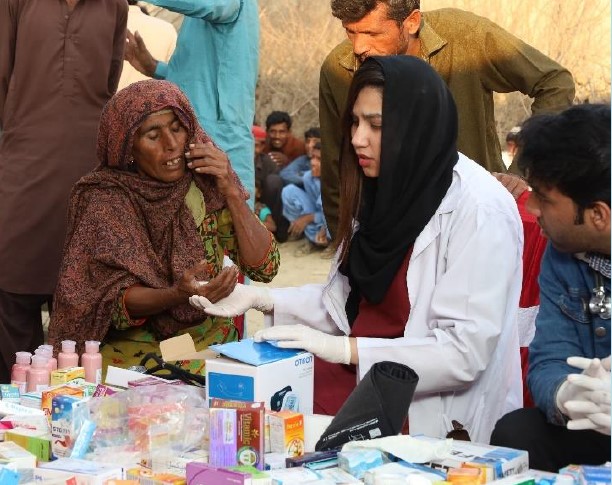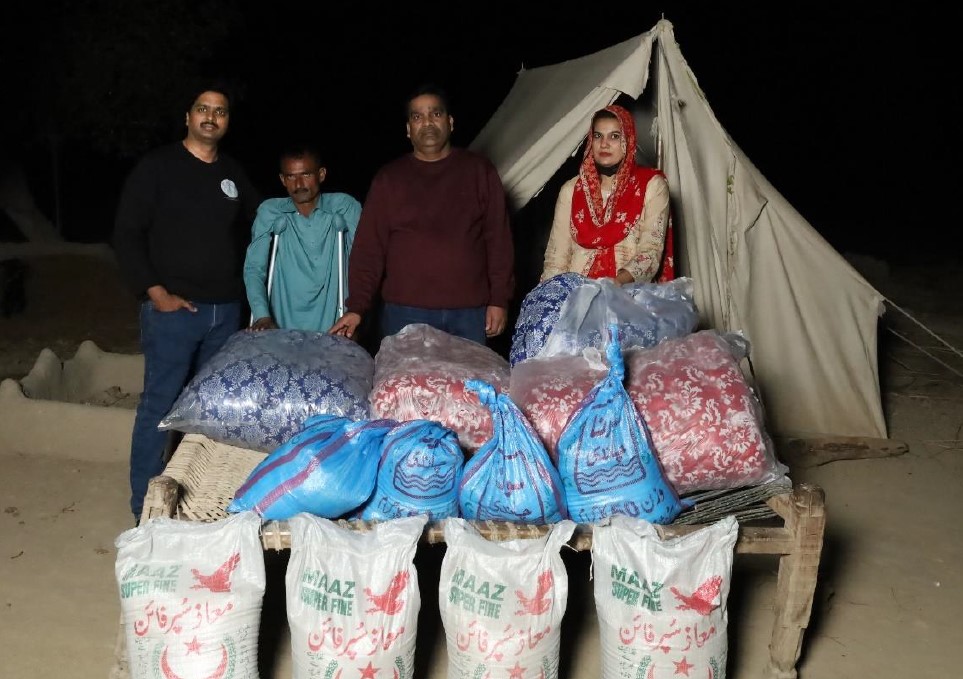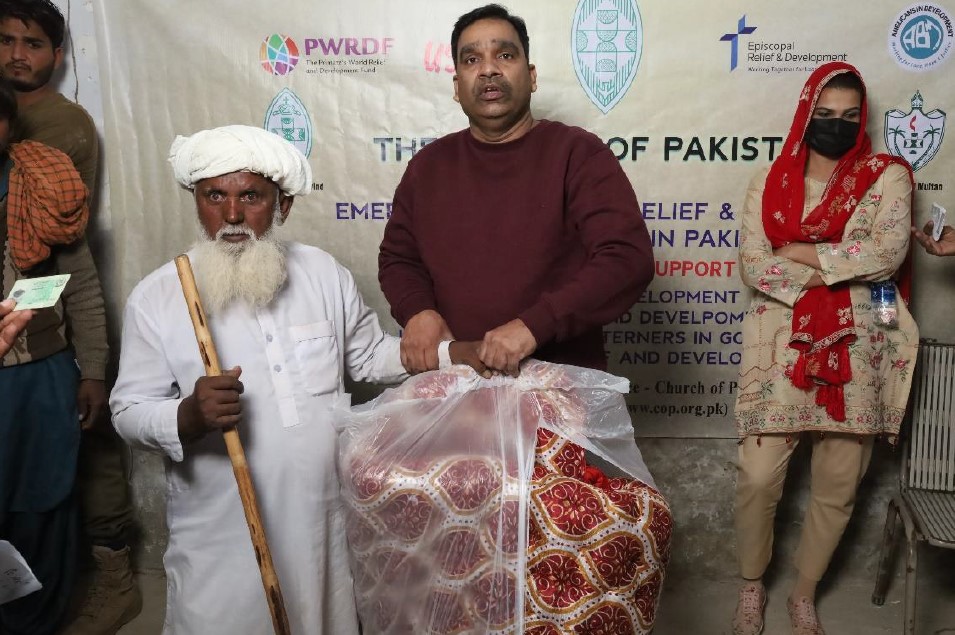Quilts and daal channa distributed to flood survivors in Pakistan
Quilts and daal channa* distributed to flood survivors in Pakistan
When massive floods swept through the Punjab region of eastern Pakistan in August 2022, the Church of Pakistan rallied to support those affected. AID and other Anglican church aid agencies around the world sent funds to the Church of Pakistan, which used these to provide much-needed relief supplies.
During two separate visits, food packages were provided to more than 2,500 flood-affected people in five remote villages in Rajanpur district, Punjab. The food packages included daal channa, flour, rice, and cooking oil. In addition, 550 households were each given drinking water, a mosquito net and three quilts.
The region is one of the highest, coldest parts of Pakistan. Families had lost many of their blankets during the flood so, with winter approaching, they appreciated the distribution of quilts in November 2022.
The United Church of Pakistan also set up a temporary medical facility in the area, providing hygiene awareness and checking the health of more than 2,500 people. The most common condition they found was skin issues, especially among children, due partially to unhygienic conditions created by the flood. One church worker noted that, “It took around several hours for our medical team to serve the purpose to reach these people. Witnessing the health issues of these people and realizing how they are living with this limited medical help was really heart breaking.”
One of the local people was Muhammad Shafi, a resident of Kotla Rubaid, Fazilpur. Muhammad has an ongoing disability from having contracted the polio virus in his childhood. He owned a tailor shop next to his house, but it was swept away during the flood. For one whole week he sheltered in a tree near his house until the water level dropped. Mr Shafi thanked the Church of Pakistan for providing support as he works to rebuild his life after the flood.
AID was able to provide support to the United Church of Pakistan for this emergency flood response by virtue of its rapid emergency response fund. This fund is made up of any funds raised in excess of needs for other emergency appeals. Having the funds in readiness enables AID to make a quick assessment of the situation via the local partner, and to send a modest amount of funding when and where it is needed most, largely to emergency responses being made by Anglican church partners around the world.
Thank you to all who support the emergency response work of AID!
* split chickpeas

The Church of Pakistan set up an emergency medical camp in the area affected by the floods. © Church of Pakistan. Used with permission.

Church workers distributing food and quilts to flood-affected villages, including Mr Shafi, second from left © Church of Pakistan. Used with permission.
